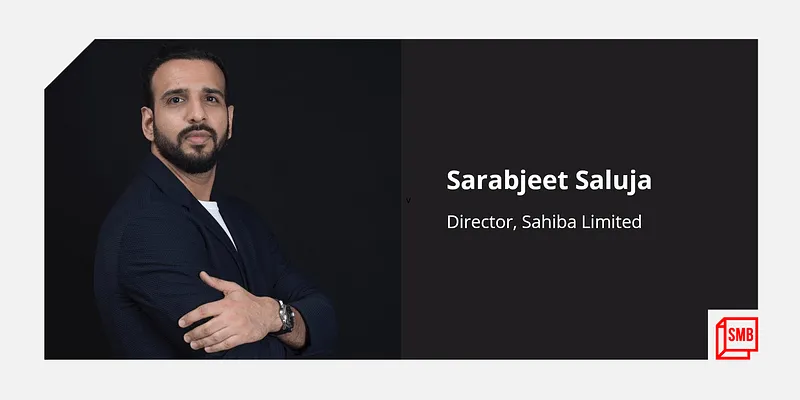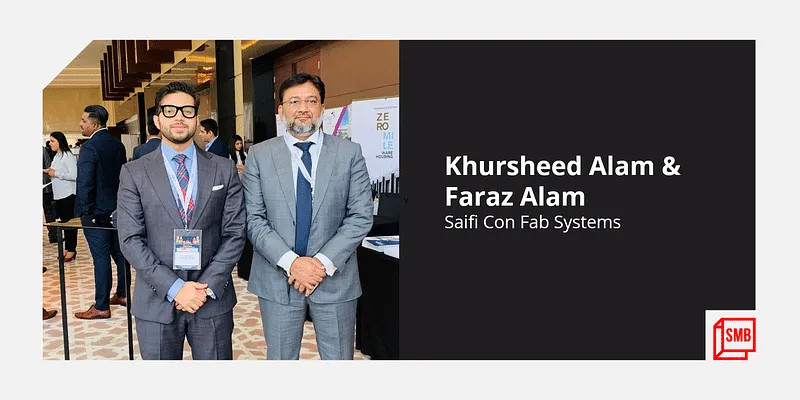How these Indian traditional businesses pivoted to stay relevant
This week, SMBStory explored five traditional businesses, starting as early as 1907, to understand how they aim to stay relevant in the 21st century.
The COVID-19 pandemic accelerated digital adoption and technological advancements among businesses. And, there is a good chance that business owners might miss out on innovation and growth if they don’t keep up with the changing times.
However, it is not easy to stay grounded in a highly competitive and ever-changing market. From integrating technology, assessing the consumer demand patterns, and what the competitors are doing, entrepreneurs need to up their game with relentless perseverance and effort.
This week, SMBStory explored five traditional businesses, starting as early as 1907, to understand how they aim to stay relevant in the 21st century.
Vadilal

We have all grown up enjoying Vadilal ice creams with our friends and families.
Vadilal was started in 1907 by Ranchodlal Gandhi when ice creams were hand-made. “His vision was to give the city something that had not been experienced before,” says Aakanksha Gandhi, Brand Director, , who joined the business four years ago.
In 1926, the company decided to import ice cream-making machines, and there was no looking back for Vadilal. Over the years, the legacy company has expanded to sundaes, dollies, and also exports frozen vegetables.
At present, Vadilal is on track to venture into the cafe-experience space, with its first outlet in Ahmedabad, called Now For Ever.
In an interaction, Aakanksha, a fourth-generation entrepreneur, shares the intention behind exploring this category and the company’s future plans.
Vasu Healthcare

The COVID-19 pandemic put the spotlight squarely on health – and it’s not moving anytime soon.
While several new companies emerged in this space, thanks to the growth potential, several established players are gung-ho about leveraging this trend. Among them is Vadodara-based .
The company, which manufactures and sells pharmaceutical and personal care products, was founded in 1980 by brothers VB Ukani, HB Patel, and JB Ukani.
In 2019, it decided to launch a nutraceutical vertical, Vasu Nutra. The brand manufactures 100 percent vegan products, free of any preservatives.
Its sales come from online platforms such as , , , and , whereas the rest comes from offline channels like general trade and modern trade. It has listed its products also on the company’s D2C website Vasu Store.
This year, the company plans to launch 10 products in categories, including Dengue, PCOS, Menopause, Urinary Care, etc.
Gangwal Healthcare

Gangwal Healthcare was started in 1987 by Anil Jain. The large business manufactures and sells pharmaceuticals and personal care products.
In 2015, second-generation entrepreneur Pranay Jain joined his father’s business to handle international operations. Seeing the growth potential in the nutraceutical and supplements segment, he decided to launch a separate vertical for it in 2017.
Formerly called Body&U, BodyFirst was started to make “India nutritionally responsible while providing authentic, genuine, and clinically researched products to Indians,” Pranay tells SMBStory.
The Mumbai-based brand offers a host of products, including plant protein, KSM66 Ashwagandha, vegan Flaxseed Oil, Fenugreek fibre, Astaxanthin, probiotics, whey protein, My Crunch protein bar, and more.
Today, is present in 45 cities through offline and online channels.
The company is on a mission to become a complete health solutions brand. While it already has sizable penetration in categories such as immunity, health management, weight management, protein, and cholesterol control with 55 SKUs, it plans to penetrate deeper into the skincare and children’s health categories.
Sahiba

Having observed his father, Kuldeep Saluja, toiling his way up to build a prominent apparel brand, Sahiba Limited, Sarabjeett Saluja, aka Sabby, says he always knew he wanted to be in this business.
And so, after returning from Australia in 2009, he immediately joined the Surat-based family business in December the same year.
While Sahiba is now an established Indian apparel brand, Sabby was itching to do something different that would add value to the larger group, which led him to launch in 2019 with Rs 10 crore, a plan that was under progress since 2016.
He says, “Sahiba has been competing mostly with the informal and formal sector in India. But what troubles us is that we have not been able to compete with Indonesian and Korean brands, which have a big export market,” he highlights.
The brand offers tops, kurtis, jackets, kurta sets (both stitched and unstitched), loungewear, and more. While it has priced items like scarves and masks below Rs 2,000, the price for apparel begins from Rs 3,000 onwards.
Saifi Con Fab Systems

With the onset of COVID-19, businesses have realised that they cannot go on as they wish to without leveraging technology. The pandemic accelerated the pace at which businesses, especially SMBs, are adopting technology.
Faridabad-based was started by Khursheed Alam in 1987. From a simple material manufacturing company to making conveyors, Saifi has scaled quite a bit in the last 35 odd years. It has also been a witness to the evolving manufacturing and warehouse ecosystem of India.
Warehouse automation is one of the newest trends to have strongly emerged in the Indian manufacturing industry — a market exhibiting significant growth owing to the growing need for a cost-effective production method.
Keeping up with this trend, Saifi launched a smart automation solutions provider brand, Atmos Systems, in 2020. Atmos Systems provides turnkey warehousing solutions using technologies like the Internet of Things, automation, and more.
Edited by Suman Singh



![[Women’s Day] Meet the entrepreneurs who are shattering the glass ceiling in India’s manufacturing sector](https://images.yourstory.com/cs/21/e1da3a20368f11ea8ceed32dbcb77ccc/Imagetfkz-1646666675902.jpg?fm=png&auto=format&h=100&w=100&crop=entropy&fit=crop)







